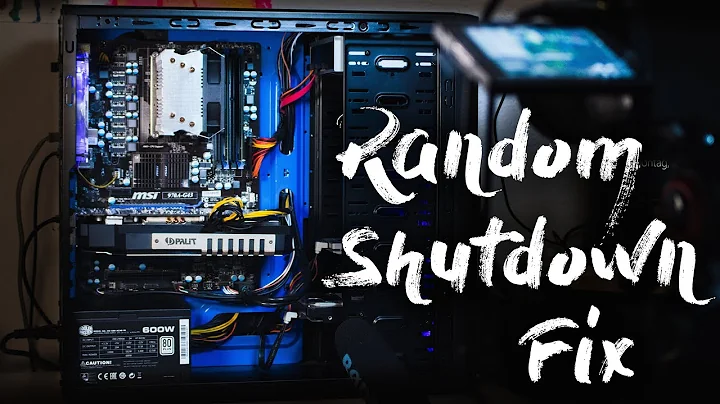Solid State Drive + Forced Shutdown
Solution 1
I would not underestimate the ammount of work a SSD could be doing behind the scenes in its own hardware to do wear leveling , and completion of block writing from cache. Plus you have initiated trim and garbage clean-up, that is also a concideration because of active writes.
The ammount of activity that is not user initiated, or even system initiated, in an SSD would be much higher than that for a HD.
I have always wondered about very high use sectors of most of the newer file systems, the ammount of re-writing to those blocks, and the need that would exist to include them in wear leveling. That set of files can be really important to the integrity of the file system total.
I would not want to do forced shutdowns , and power off slams if it can be avoided, I would not have a great fear of doing it, but I would continue to avoid doing so. SSD is another reason to avoid such things.
It is unlikely to cause a complete hardware failure of the SSD , but with much more writing occuring internally, getting things messed up, even very important things is more likely.
Even for hard drive only systems, raid and all, IF a full hard system lock should occur (software all locked) , I always pause for 30sec to a minute, in the case that any internal cache activity that had begun, could be completed prior to me pulling all the power out from under it. Could be paranoid or it could be more reasons why I rarely corrupt and lose data.
Solution 2
It depends on what you mean by damage the SSD. Hardware kind of damage, no. Software kind of damage, yes.
As with any drive, if windows is writing to an important systemfile while the power is cut, that file will become corrupted. If the important systemfile is required for windows to properly work, windows will no longer boot.
As for hardware kind of power down, if you cut the electricity to the device, it simply stops. There are no mechanical parts in an SSD so its even less prone to failure. The problem with power outages is usually that before there is a power outage, first a big voltage is sent over the powergrid. Usually it won't reach your home and if it does, there could be several protections in place before such spike actually reaches your home. But if it still does, only then it could fry a component inside your computer, your SSD included.
Related videos on Youtube
Admin
Updated on September 18, 2022Comments
-
 Admin over 1 year
Admin over 1 yearCould doing a forced shutdown by holding down the power button cause damage to a solid state drive? What about cutting off the power supply?
-
Ramhound almost 9 yearsThis type of event won't cause damage to hardware it's designed to be turned on/off the file system is something different
-
-
Ramhound almost 9 yearsMost of what you describe wouldn't result in physical damage to the hardware just corruption to the data stored on it, which is a product of a file system for the most part, or the very worst missing data ( i.e. data wasn't written ) not corrupt data. good answer though.
-
 Admin almost 9 yearsOk, I was asking because my 3-year old SONY VPCEH25FM laptop sometimes runs out of RAM so quickly that the laptop freezes and doesn't work until I restart it(with forced shutdowns). I don't know why the paging file isn't helping.
Admin almost 9 yearsOk, I was asking because my 3-year old SONY VPCEH25FM laptop sometimes runs out of RAM so quickly that the laptop freezes and doesn't work until I restart it(with forced shutdowns). I don't know why the paging file isn't helping. -
 Psycogeek almost 9 yearsThen find out what is sucking up the ram. Or possibly it is a slightly different issue that seems like that is happening, because having 98% the ram eventually all in-use is normal , the system cache will properly use it all. . In the mean time IF it will eventually turn off (I have been there at times too) with a proper shut-down (yaaawwn) then find something else to do for a few minutes :-)
Psycogeek almost 9 yearsThen find out what is sucking up the ram. Or possibly it is a slightly different issue that seems like that is happening, because having 98% the ram eventually all in-use is normal , the system cache will properly use it all. . In the mean time IF it will eventually turn off (I have been there at times too) with a proper shut-down (yaaawwn) then find something else to do for a few minutes :-) -
 Admin almost 9 yearsI can't do a proper shutdown because the entire operating system is frozen and doesn't work. ='(
Admin almost 9 yearsI can't do a proper shutdown because the entire operating system is frozen and doesn't work. ='( -
user1901982 over 7 yearsA 240GB SSD that is 50% full will achieve the equivalent of 4 days worth of "average day" reads carrying out a full file integrity scan, then another 8 days worth of writes scanning free space for bad blocks. That sounds like a good recipe for mechanical failure in the long run. If it runs out of reallocatable space, or the internal ARM processors corrupt their own code, the result is much the same as a corrupt BIOS on a computer and you will experience errors that may as well be mechanical. I personally own SSDs that do not even power up now due to frequent hard shutdowns (DOS programs).






